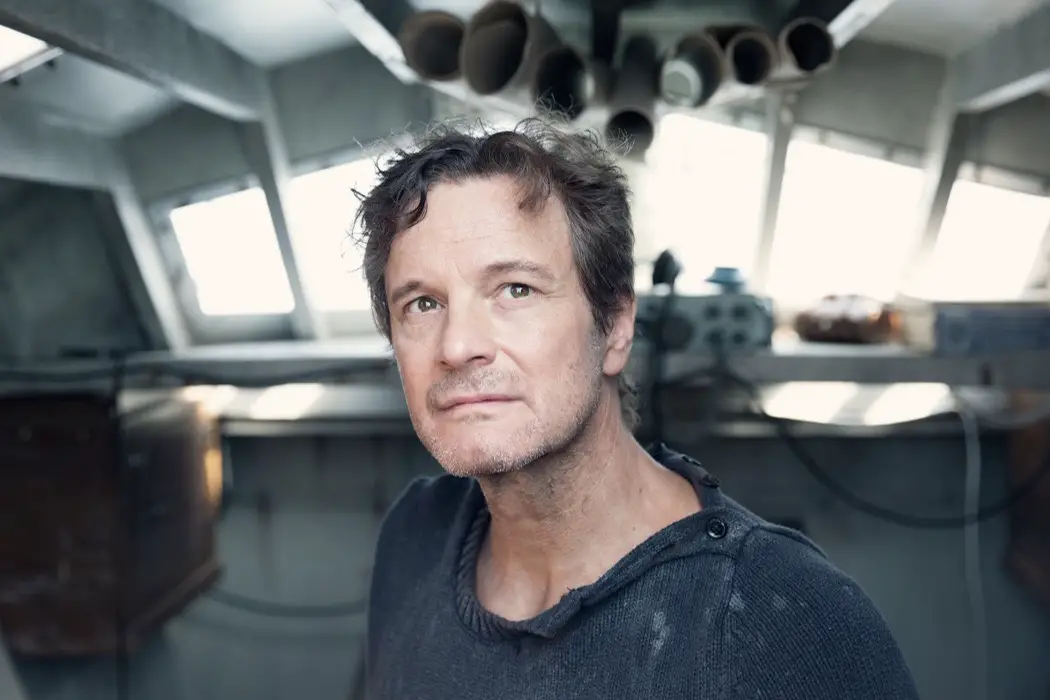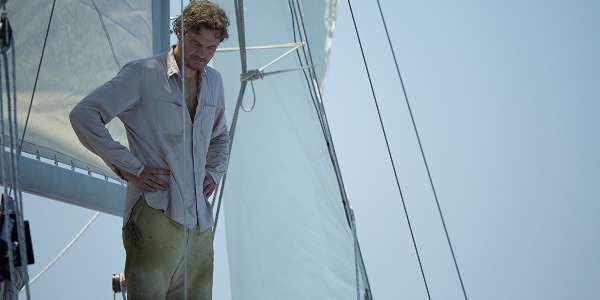THE MERCY: Watered Down, But Far From Lost At Sea

Alistair is a 25 year old writer based in Cambridge.…
Like the old maxim about waiting all day for a bus only for two to show up at once, out of nowhere two biopics of sailor Donald Crowhurst have arrived. Both were filmed back in 2015, and in a rarity for dual films depicting the same subject matter, were both swiftly picked up by UK distributor Studio Canal to avoid the pair competing against one another.
Despite a three year wait on the shelf, the first of the two to arrive, James Marsh’s The Mercy, bares very little sign of a troubled post-production period. In fact, the fast paced storytelling (which suggests a significantly longer cut edited down to a respectable, bare bones feature length) is actually what helps elevate it slightly above similar middlebrow, mid 20th century English period dramas.
A Journey Doomed to Fail
In Marsh’s film, Colin Firth stars as Crowhurst, an amateur sailor with a struggling business selling boating equipment. At a boating exhibition, he hears about the Sunday Times Golden Globe Race – a non-stop around the world boating race lasting nine months, that would give prizes to the fastest entrant and the first person to complete the journey (there was no designated start date).
Without consulting his wife (Rachel Weisz) or family, Crowhurst applies, and work soon begins on getting his sailing boat, The Teingmouth Electron, ready for the voyage, as well as hiring a press agent (David Thewlis) who focuses on getting him extensive news coverage and sponsorship deals. The hastily planned voyage is doomed before it begins. Crowhurst’s boat is visibly not ready, but after being coerced into signing a contract that would see his family’s home taken from them were he not to set sail, he heads off to sea anyway. Naturally, things do not go as planned.

The Mercy admittedly doesn’t share the same characteristics as screenwriter Scott Z Burns’ prior collaborations with Steven Soderbergh. Whereas his previous scripts like Contagion and Side Effects managed to incorporate satirical narrative strands aimed at the media’s portrayal of a tragedy and the cynicism of big pharma respectively, themes hinting at the media’s manipulation of Donald Crowhurst are merely hinted at here and never explored in the detail they deserve.
Again, this feels like a by-product of the film’s brisk storytelling pace; the circumstances that forced Crowhurst into the ocean are similar to Burns’ proven thematic obsessions in prior screenplays, and it seems highly likely this idea was more comprehensively covered in the screenplay itself. Marsh’s film instead leaves these ideas open to interpretation- leaving you fascinated, yet wanting to delve in deeper to get to the bottom of the situation.
A (slightly sanitised) decent into madness
Despite a background in documentary filmmaking, Marsh has lost all of his inquisitive edges when it comes to making narrative features based on real life events. The Theory of Everything may have been an awards favourite a few years back, yet it still felt like a surface level portrait of Stephen Hawking.
The Mercy fares better largely as this true story has become increasingly forgotten as time has passed, and therefore possesses a stranger than fiction quality – it succeeds in getting you interested in this extraordinarily tragic tale, even as it never dares to delve deep enough to fully explore the circumstances that caused it to unfold in the first place. As a piece of filmmaking, it also feels a lot more confident than Marsh’s previous effort; you can feel him stepping out of his comfort zone with ease when depicting the increasingly nightmarish scenarios onboard the Teignmouth Electron.

However, even these moments feel like they may have had an increased horror factor in Burns’ screenplay, due to the writer’s background crafting elegant genre films. They also feel like they may pale in comparison to the way these sequences are handled in the other biopic, Crowhurst, from director Simon Rumley – an experimental horror director who may be more capable at translating the visceral terror of being stranded at sea into his telling of the story.
This isn’t to slight Marsh’s attempt at telling the story in any way. He captures nothing but solid performances from his ensemble, including a lead performance from Firth that channels Robert Redford’s commanding turn in All is Lost, and still transforms the ocean into an evocative nightmare rivalled only by Crowhurst’s own descent into sheer madness. But it still feels like a watered down (no pun intended) telling of the story, one that manages to capture your interest, while leaving you wishing it could dive in deeper to Crowhurst’s increased mental instability, and the people who forced him in to such a harrowing circumstance in the first place.
Conclusion: The Mercy
However, the fact that it remains as engaging as it does despite these flaws is a credit to Marsh. His film may lie on the same middlebrow ground as his previous narrative efforts, but very few details have been sanitised to make this palatable for a wide audience – and as stated above, this feels less like a design choice and more like a by-product of editing down a significantly longer film to respectable feature length during the extensive post-production period.
We may need another biopic to get the full depiction of Donald Crowhurst’s ill fated voyage, but The Mercy is more than substantial, even in its current bare bones narrative state.
What are the best, most ship-shape, movies set at sea? Tell us your thoughts in the comments below!
The Mercy will be released in the UK on February 9th 2018, and in the US later in 2018. For all international release dates, see here.
Does content like this matter to you?
Become a Member and support film journalism. Unlock access to all of Film Inquiry`s great articles. Join a community of like-minded readers who are passionate about cinema - get access to our private members Network, give back to independent filmmakers, and more.
Alistair is a 25 year old writer based in Cambridge. He has been writing about film since the start of 2014, and in addition to Film Inquiry, regularly contributes to Gay Essential and The Digital Fix, with additional bylines in Film Stories, the BFI and Vague Visages. Because of his work for Film Inquiry, he is a recognised member of GALECA, the Gay & Lesbian Entertainment Critics' Association.













